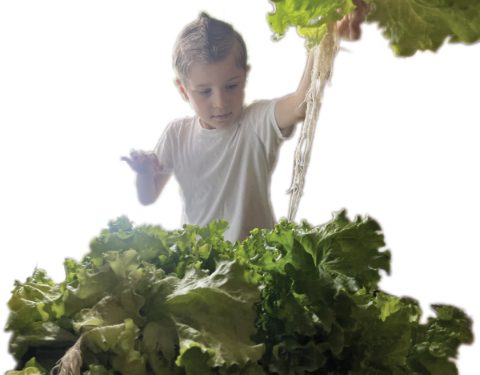#Hydroponics #AgricultureEducation #SchoolLunch #SustainableFarming #Nutrition #FoodProduction #Innovation #EnvironmentalSustainability
In a recent initiative at the Howland Local School District, students have taken on the role of farmers, cultivating and harvesting hydroponic-grown lettuce. Led by the district’s food service supervisor, Justin Pancake, students participated in harvesting events at Glen Primary School and H.C. Mines Elementary School. The lettuce harvested was then incorporated into salads served during school lunches, marking the first use of produce from the newly installed hydroponic systems in elementary school meals.
With hydroponic systems now in place at four schools within the district, students have the opportunity to engage firsthand in the growing process, learning valuable lessons about agriculture and nutrition along the way. According to Pancake, each hydroponic system is capable of producing approximately 25 pounds of lettuce every four to five weeks. The district plans to expand its growing efforts to include kale and Swiss chard in the next growing cycle.
Hydroponic gardening, a method of growing plants without soil, offers numerous advantages for both educational and practical purposes. It allows for year-round cultivation of a variety of edible plants indoors, providing fresh produce regardless of season or climate. Furthermore, hydroponic systems require minimal space and water, making them accessible and sustainable options for food production.
Experts in agriculture view hydroponic gardening as a significant innovation with the potential to revolutionize food production. By eliminating the need for soil and optimizing nutrient delivery to plant roots, hydroponic systems offer increased efficiency and yield compared to traditional farming methods. Moreover, they can be implemented in diverse environments, including urban areas and regions with limited arable land, contributing to food security and sustainability.
The integration of hydroponic gardening into school curriculums not only enhances students’ understanding of agriculture but also promotes healthier eating habits through access to fresh, locally grown produce. As the popularity of hydroponic gardening continues to grow, its role in shaping the future of food production becomes increasingly significant, offering sustainable solutions to global challenges in agriculture and nutrition.










